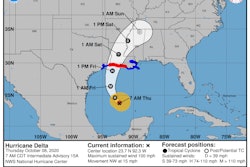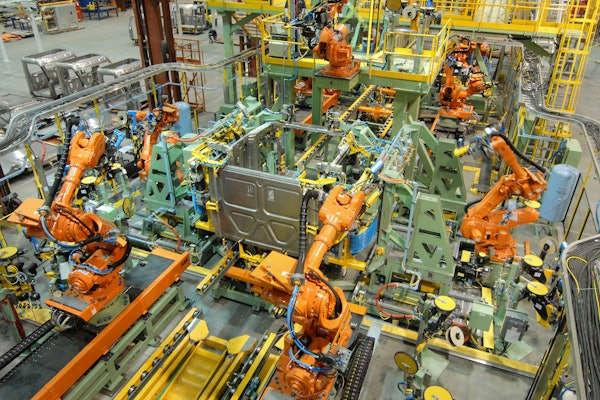Buzzwords and trends tend to come and go in trucking but powertrain electrification seems to have some staying power.
Legacy trucking OEMs, alongside countless electric and technology upstarts, have set their sight on zero tailpipe emissions and are pumping millions of dollars into research development.

Fleet executives face unique challenges in their roles every day, especially in 2020.
During the seven sessions of CCJ Virtual Solutions taking place October 19-22, you’ll get answers to your toughest fleet management problems from the top leaders and business minds in the trucking industry. Registration is free and sessions include:
- Biden vs. Trump: What the Next President Could Mean for Trucking
- Costly Jury Verdicts Driving Up Insurance Rates
- Heavy Hitter Insights on Freight Flows
- Electric vs. Hydrogen: Trucking’s Next Big Thing?
- Putting Driver Safety Data to Work
- Unplanned Maintenance’s Impact on Total Cost of Ownership
- Raising the Bar: How to Discover and Draw Top Talent
The proliferation of the battery electric vehicle (BEV) could bring with it many changes within the industry. Lower transportation-related emissions and a reduced cost of ownership are the most often cited, but it could also shift the dynamics between the truck OEM, the dealer and the customer.
Davis said she sees Cummins’ role as that of a consultant, helping fleets evaluate their new power options. Cummins, who embraced natural gas and hybrid technologies early on, is applying that duty cycle knowledge to battery-electric and fuel cell electric development, enabling the company to “work with fleets and OEMs to find the best solutions, and have all the options for the market,” Davis said.
On the global level, Daimler Trucks last month announced its first hydrogen push into commercial trucking. However, for the time being, Freightliner is mostly focused on battery electric stateside.
Votes noted that Freightliner kicked off its electric proof of concept truck in 2018, “to get our feet wet, to really understand this powertrain and how to integrate it into trucks.” Since then the largest class 8 truck manufacturer has conducted two pilot projects: one via its Electric Innovation Fleet – a group of 30 BEVs in daily real-would use with two partner fleets – and another through its Customer Experience Fleet, which has a pool of 8 BEVs deployed through “a variety of different customers,” Voets said.
“They really give us the opportunity to think through this entire ecosystem because it’s not only the truck anymore when we think about battery electric. It’s a lot of the utility collaboration and it’s the infrastructure that needs to be put into place. There’s a lot of planning that needs to happen, [and] you also need to think about which routes are the right routes for electrification given the range and charge time of those trucks,” he explained.
The consultive approach to customers, said Cummins’ Davis, isn’t necessarily a new approach but the types of conversation will have to change. “Instead of doing it on sort of the powertrain spec’ing, it’s really looking at the technologies and the use cases,” she said. “In the medium term, as we’re adopting these technologies, there’s going to be a lot partnership required – a lot of education at the dealer and the fleet level.”
Similarly, Voets said that he expects the collaboration and integration between the OEM, the dealer and the customer will get “deeper and deeper,” adding that the flow of information isn’t one-way. The feedback Freightliner receives from its fleet partners, he said, is helping to refine design and technology implementation as the truck maker readies to begin BEV production in the next year.
“It’s nice and interesting to get the real driver feedback from these prototypes,” he said.
Voets and Davis will also cover the potential lower cost of ownership associated with BEVs, where this technology currently stands, and where they see its place in the market, among other topics.












